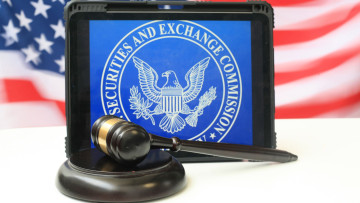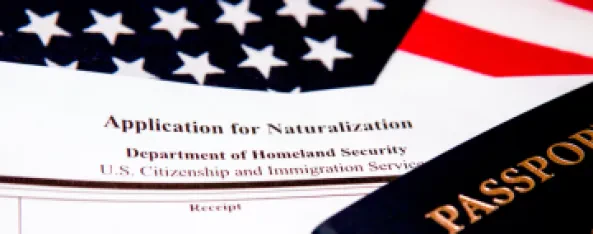Protecting Your Child’s Identity: Why a Credit Freeze Matters
In today’s digital age, identity theft is an ever-growing concern. Unfortunately, children have become prime targets for identity thieves. Because children typically have clean credit reports with no activity, their personal information can be exploited without immediate detection. Protecting your child’s identity from a young age is essential, and one of the most effective methods available is to place a credit freeze on their account until they reach adulthood. This article from Legal Marketplace CONSULTANT provides an in-depth discussion on why freezing your child’s credit is crucial and how it safeguards their financial future.
What Is a Credit Freeze?
A credit freeze, also known as a security freeze, is a tool that restricts access to the credit report. When a credit freeze is in place, creditors and lenders cannot access the child’s credit report, effectively preventing anyone from opening new accounts, applying for loans, or obtaining credit in the child’s name. Importantly, this freeze does not affect the credit score or prevent the child’s existing accounts from functioning.
The process to place a credit freeze is free and quick in most jurisdictions, including the United States. Once frozen, the freeze can be lifted temporarily or permanently for authorized parties when necessary, providing flexibility and control to the parent or guardian.
Why Are Children Targets for Identity Theft?
Children’s identities can be attractive to identity thieves for several reasons. Unlike adults, children typically do not have credit histories, debts, or accounts, making their records appear as a clean slate. Thieves exploit this by using a child’s personal information—such as their Social Security number—to apply for credit cards, loans, or other services without immediate detection.
Since a child’s credit report is usually inactive during their early years, fraudulent activity can go unnoticed for extended periods, often until the child becomes an adult and starts applying for credit themselves. By then, significant damage may have been done, requiring years of financial cleanup and recovery.
The Consequences of Child Identity Theft
The impact of child identity theft is severe and long-lasting. Victims may face numerous challenges, including:
- Damaged credit histories that affect their ability to obtain loans, credit cards, or mortgages;
- Delays in higher education funding or financial aid applications;
- Compromised personal information that may be used for other fraudulent activities;
- Legal and financial stress for both the child and the family;
- Long-term credit monitoring and remediation efforts;
- Potential denial of employment opportunities if background checks reveal fraud-related issues.
Because of these serious consequences, parents and guardians must take proactive steps to secure their children’s identities from the start.
How to Place a Credit Freeze for Your Child
Placing a credit freeze on your child’s credit report involves several simple steps. It generally requires contacting the major credit bureaus—Equifax, Experian, and TransUnion—and providing proof of your relationship, your child’s identity, and other necessary documentation. Here’s a general guideline:
- Gather documents proving your identity and your child’s identity (e.g., birth certificate, Social Security card, and government-issued ID if available).
- Contact each credit bureau either online, by phone, or by mail. Each bureau has specific procedures for freezing a child’s credit.
- Submit your request to place a security freeze on your child’s credit report.
- Keep records of all communications and confirmation numbers for your records.
- Update and maintain the freeze as your child grows, ensuring it remains in place until they reach adulthood or you choose to lift it.
Remember, a credit freeze does not expire automatically in many cases. You may need to reaffirm or maintain it regularly depending on local laws and credit bureau policies.
Benefits of Freezing Your Child’s Credit
Implementing a credit freeze for your child offers several significant benefits:
- Prevents unauthorized account openings: No one can open new lines of credit in your child’s name without your permission.
- Protects against loan fraud: Loans cannot be approved without access to the credit report, blocking fraudulent applications.
- No impact on existing financial activities: Since minors usually don’t have accounts, a freeze won’t interfere with their financial lives.
- Flexible and reversible: Parents and guardians can lift or remove the freeze anytime with proper authorization, allowing credit access when necessary.
- Peace of mind: Early action significantly reduces the risk of identity theft and its long-term effects on your child’s financial health.
Frequently Asked Questions About Child Credit Freezes (2025)
- Is placing a credit freeze on my child’s credit report free? Yes, under federal law in the United States, credit freezes are free of charge.
- Can the credit freeze be lifted temporarily? Yes, you can temporarily lift the freeze to allow authorized creditors to access the report.
- At what age can my child lift the credit freeze? Typically, the child gains control over their credit report when they reach the age of majority, which is 18 in most states.
- What if I find fraudulent activity on my child’s credit report? You should report the fraud immediately to the credit bureaus and appropriate authorities to begin remediation.
- Does a credit freeze protect against all types of identity theft? While it greatly reduces risk related to new credit accounts, it does not prevent misuse of other personal information such as medical or tax identity theft.
Additional Protective Measures for Child Identity Safety
In addition to freezing your child’s credit, there are other important steps you can take to protect their identity:
- Monitor your mail and email for any suspicious communications or account alerts.
- Shred documents containing your child’s personal information before disposal.
- Educate older children and teenagers about online privacy and the dangers of sharing sensitive data.
- Check your child’s Social Security earnings statement periodically for unauthorized activity.
- Use strong, unique passwords on online accounts related to your child or family finances.
- Consider identity theft protection services that include monitoring for minor accounts.
Legal Assistance and Resources
Navigating identity protection for your child can be complex. If you suspect your child’s identity has been compromised or need help implementing a credit freeze efficiently, seek professional legal counsel. At Legal Marketplace CONSULTANT, our experienced team offers dedicated support to manage identity theft issues, ensuring your child’s future remains secure.
To get expert legal help, contact us via the communications links in our bio or send a private message for a confidential consultation. Protecting your family’s identity is a priority, and expert guidance can make all the difference.
Legal Marketplace CONSULTANT – your trusted partner in comprehensive identity theft prevention and legal assistance. Our team specializes in securing your family’s financial wellbeing through thorough, professional support and consultation.
Protecting your child’s identity by freezing their credit is an essential safeguard in today’s environment. Since minors have spotless credit records, they are vulnerable targets for thieves, and early intervention is critical.
A credit freeze is a free, fast, and flexible defense that prevents unauthorized access to your child’s credit information, saving years of potential hardship and financial damage. Working proactively ensures your child’s financial future is stable and secure.
If you require professional assistance, the experts at Legal Marketplace CONSULTANT are ready to help guide you through the process and address any concerns you may have.































